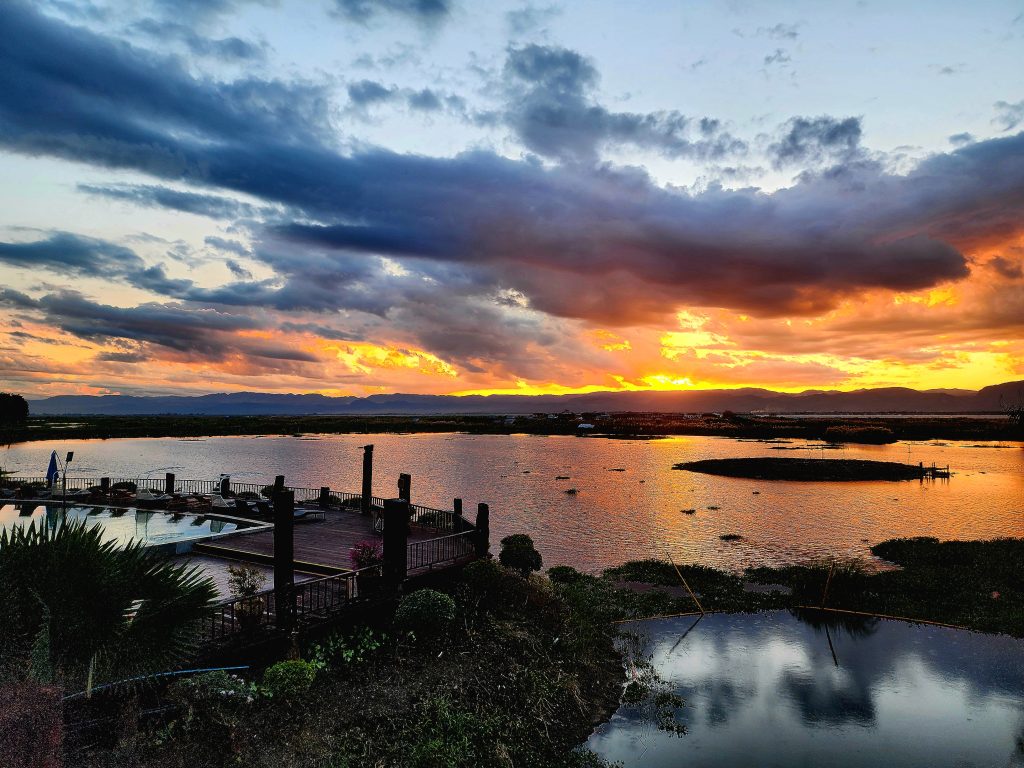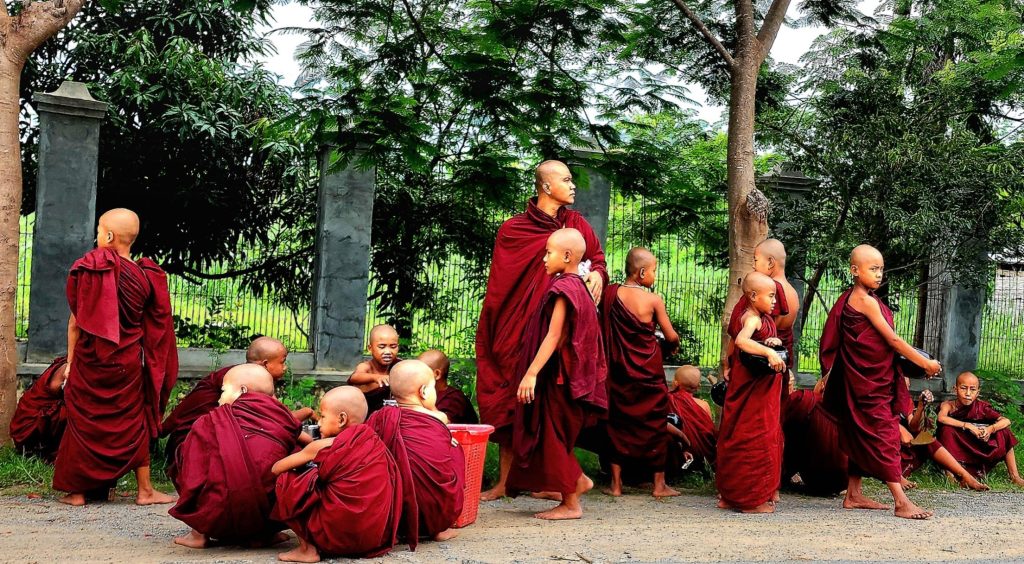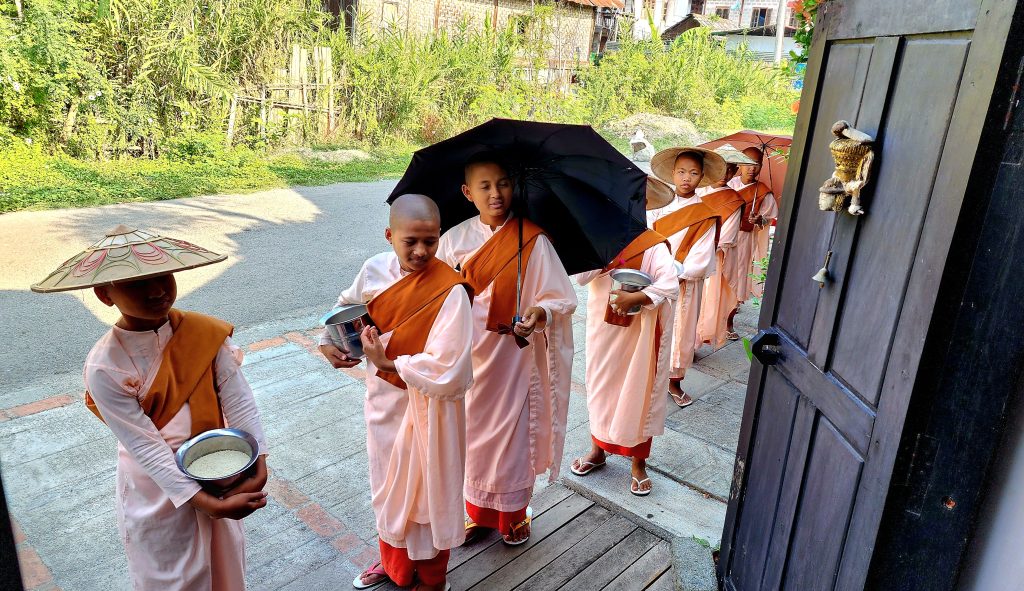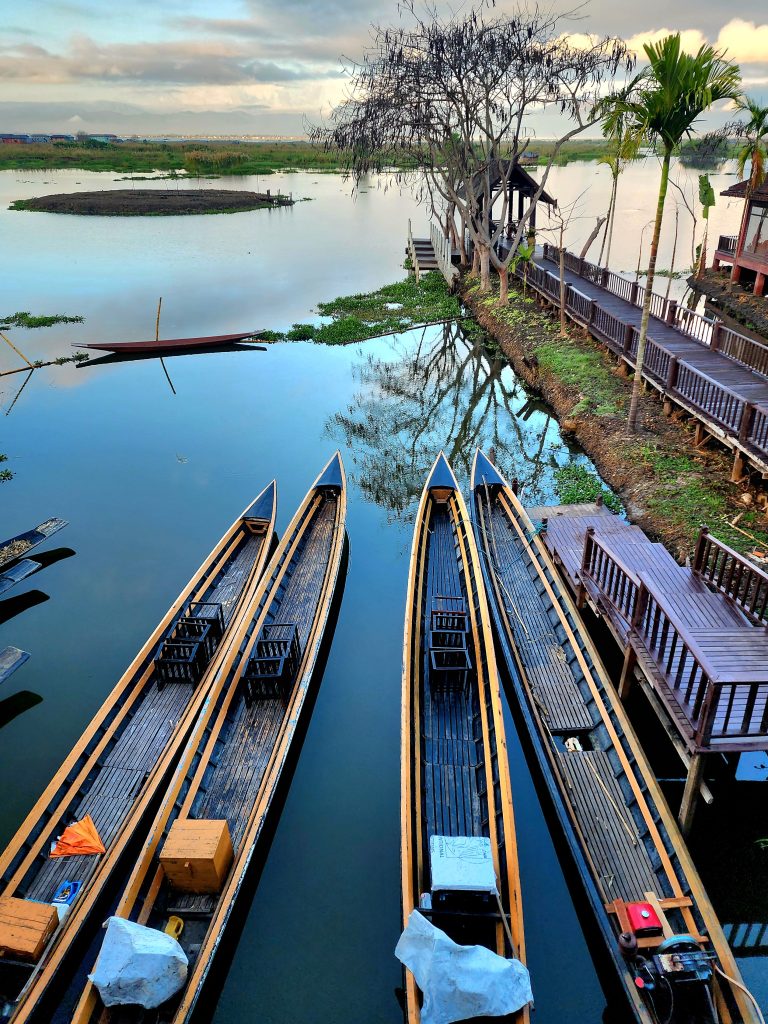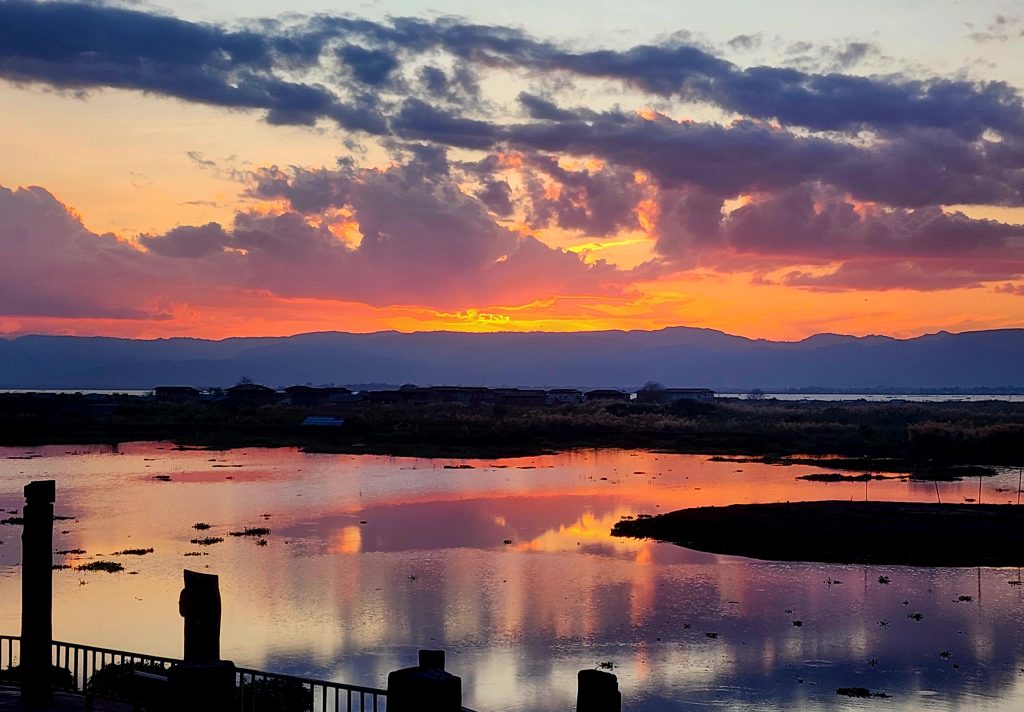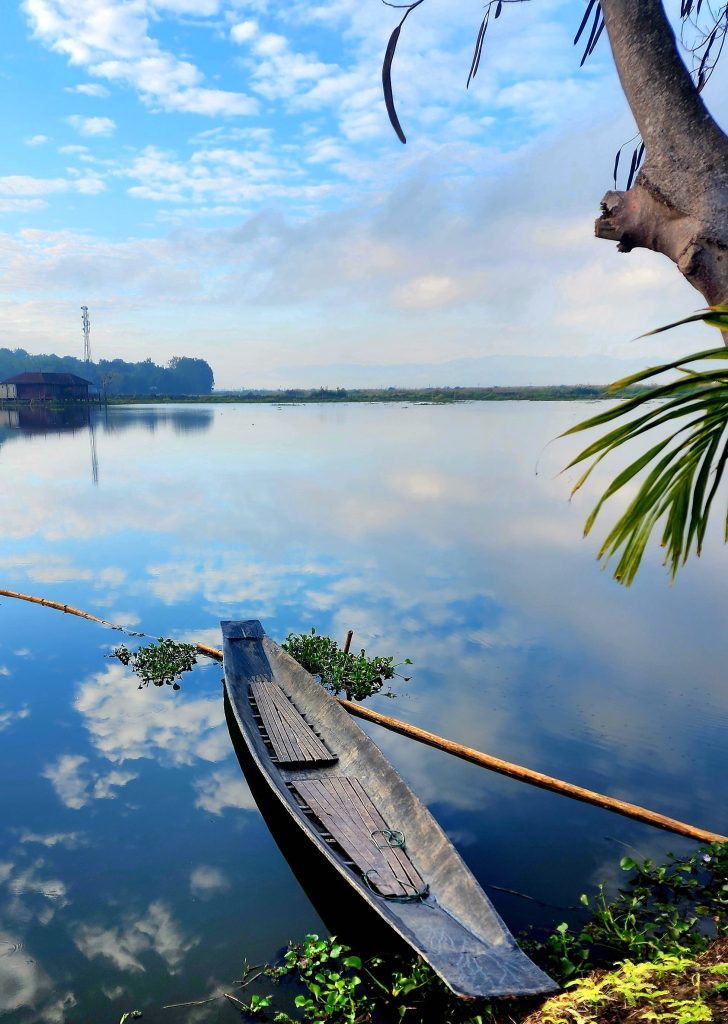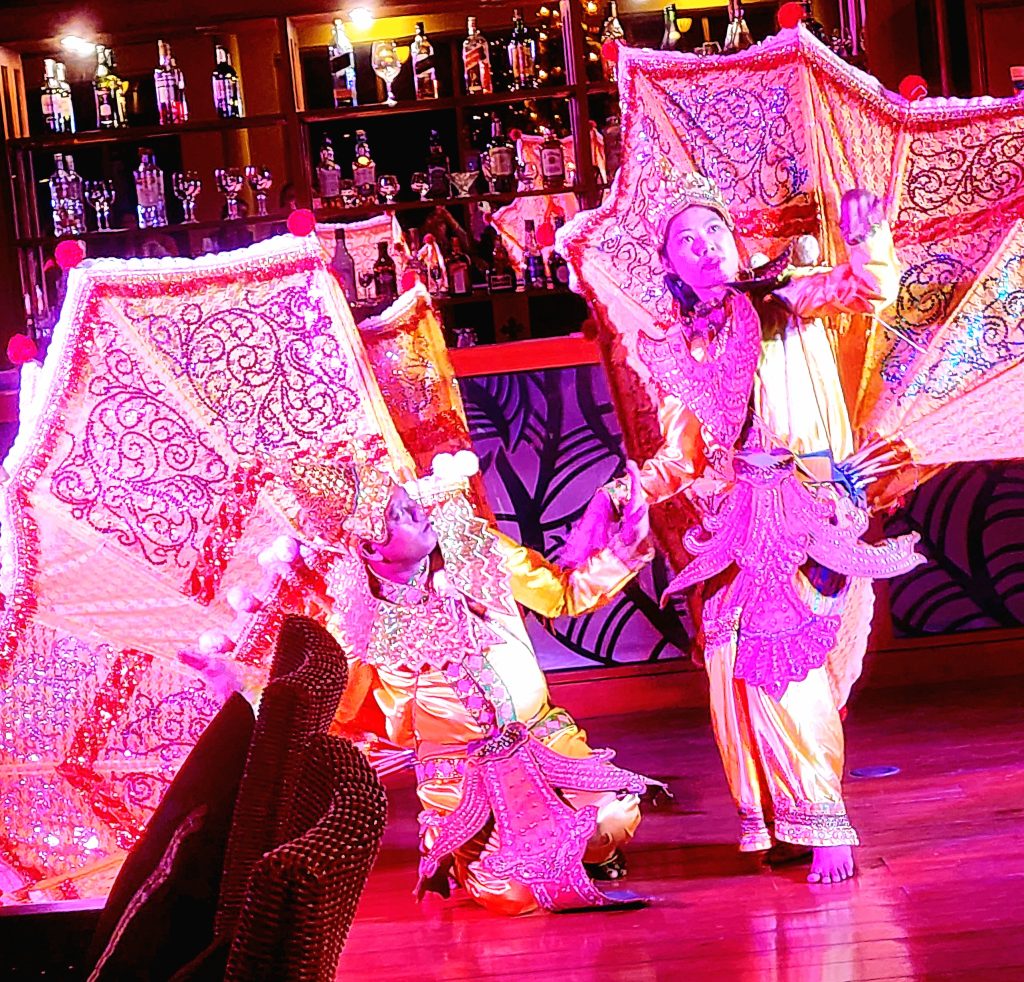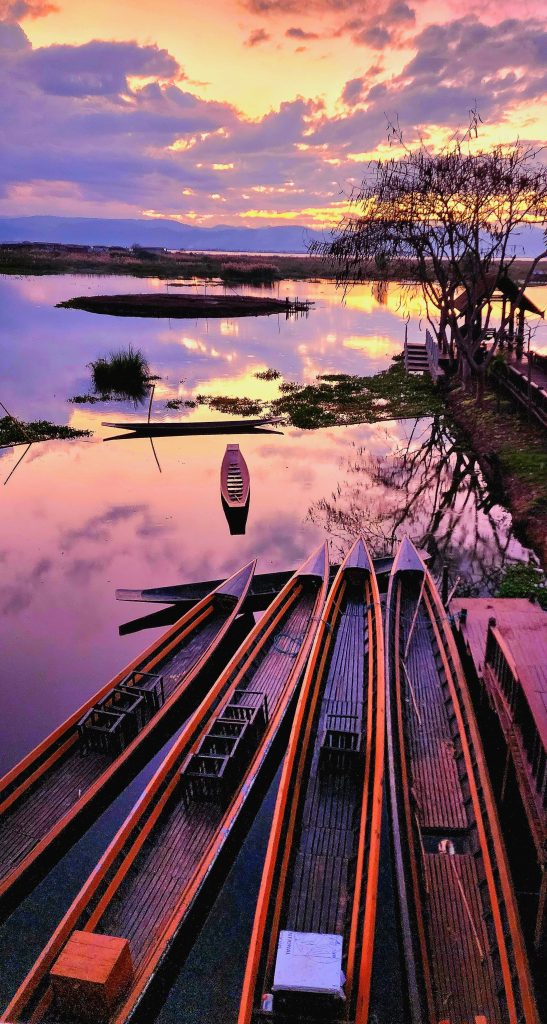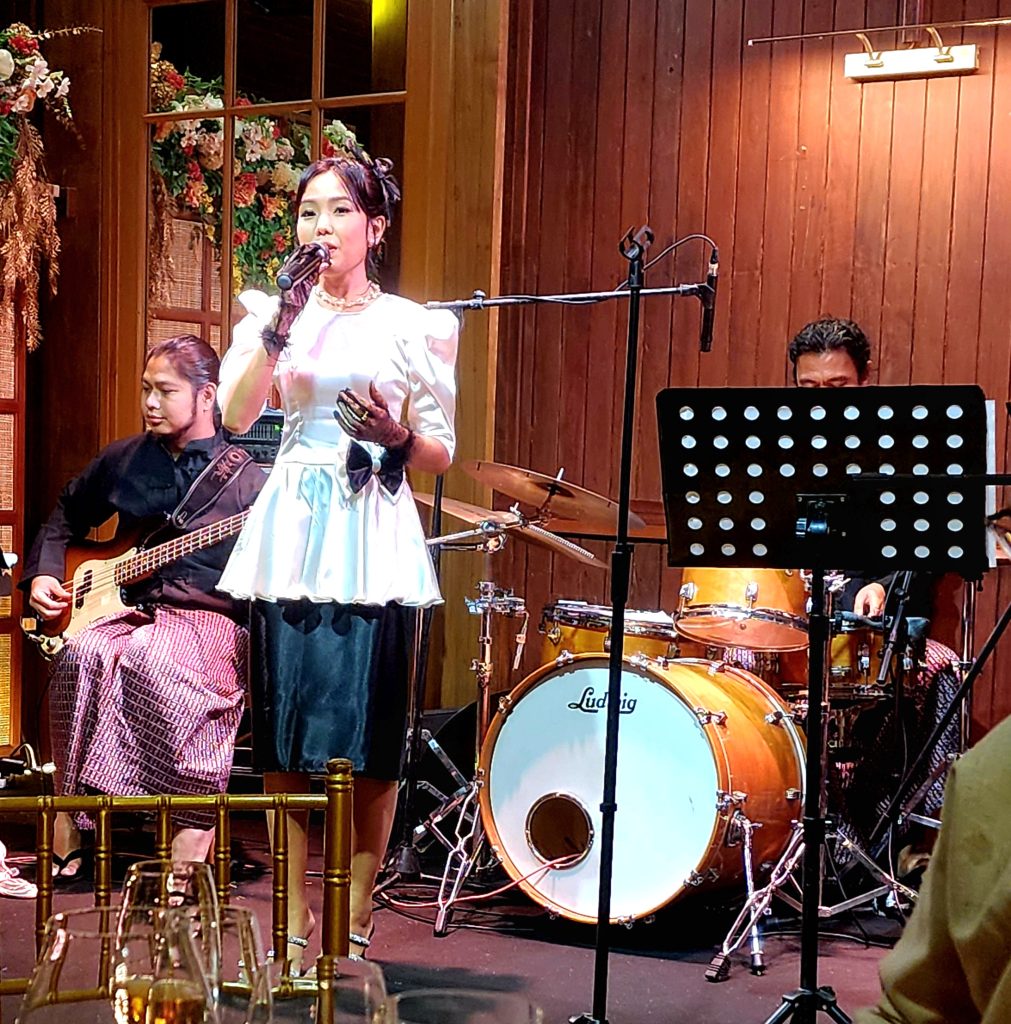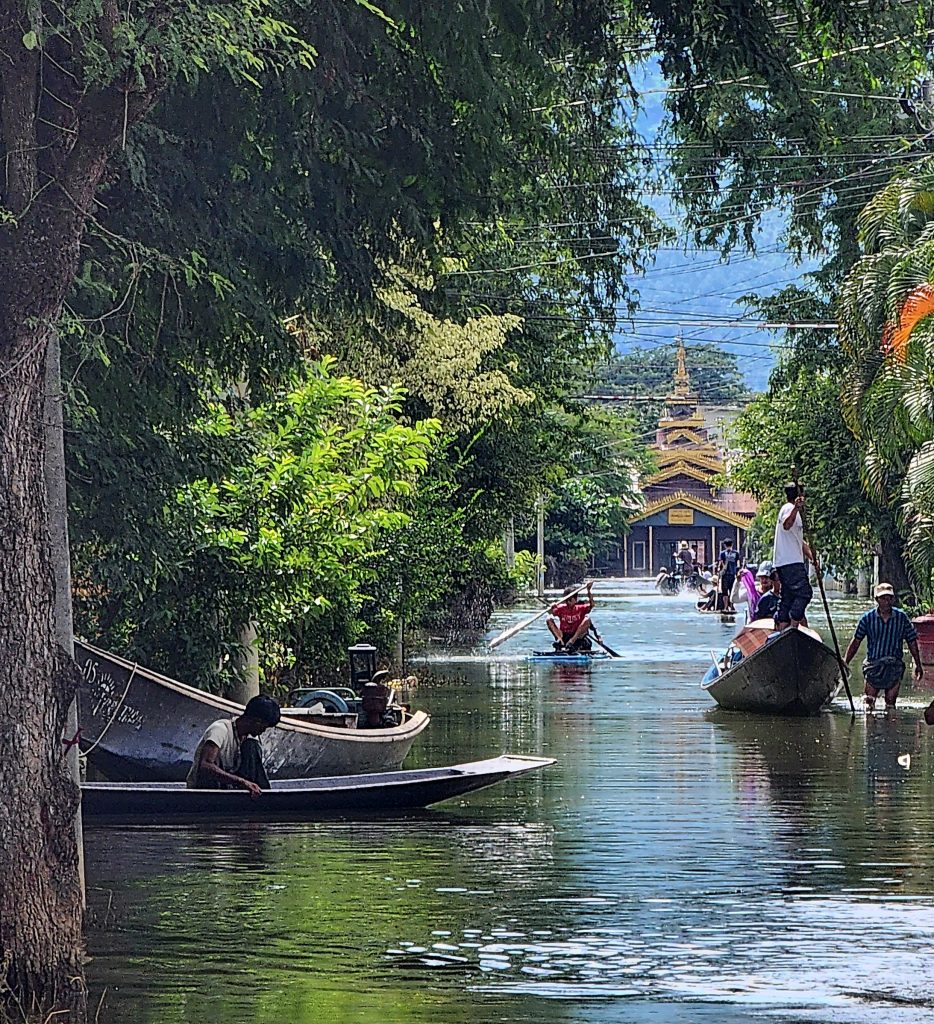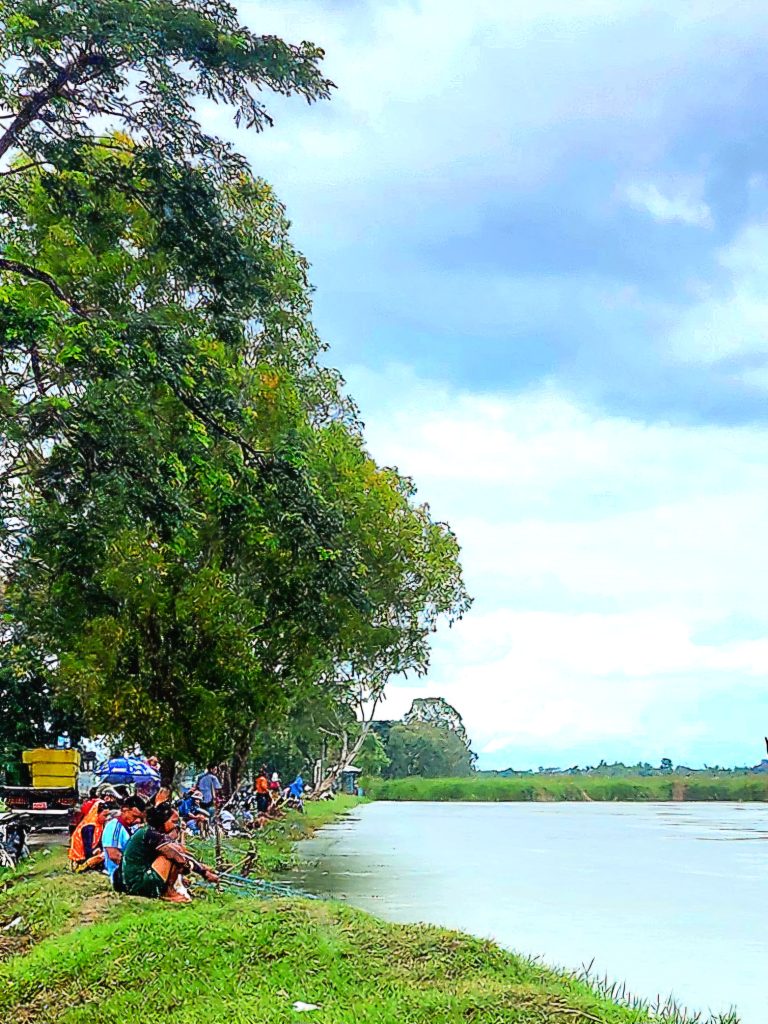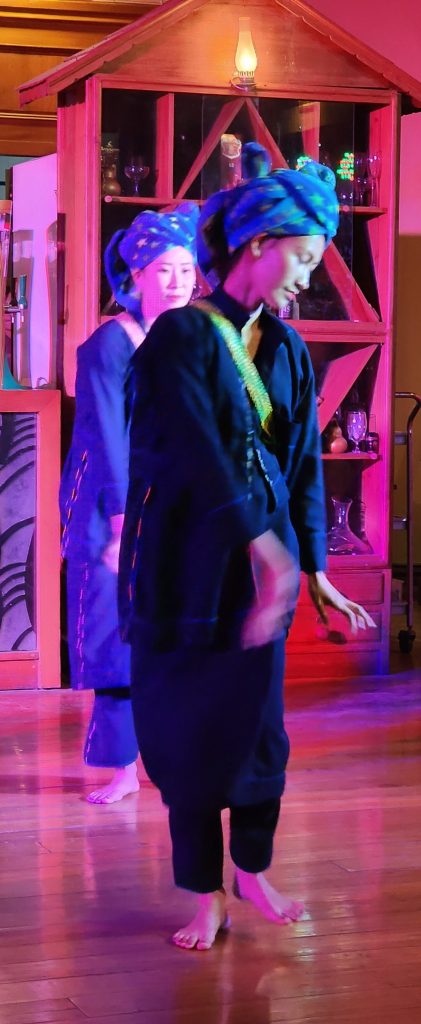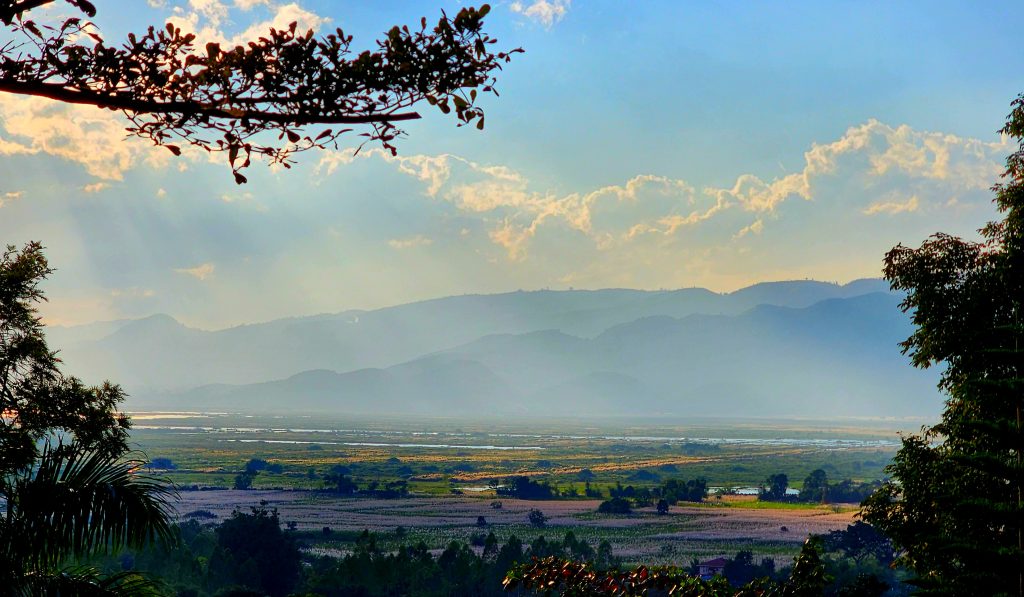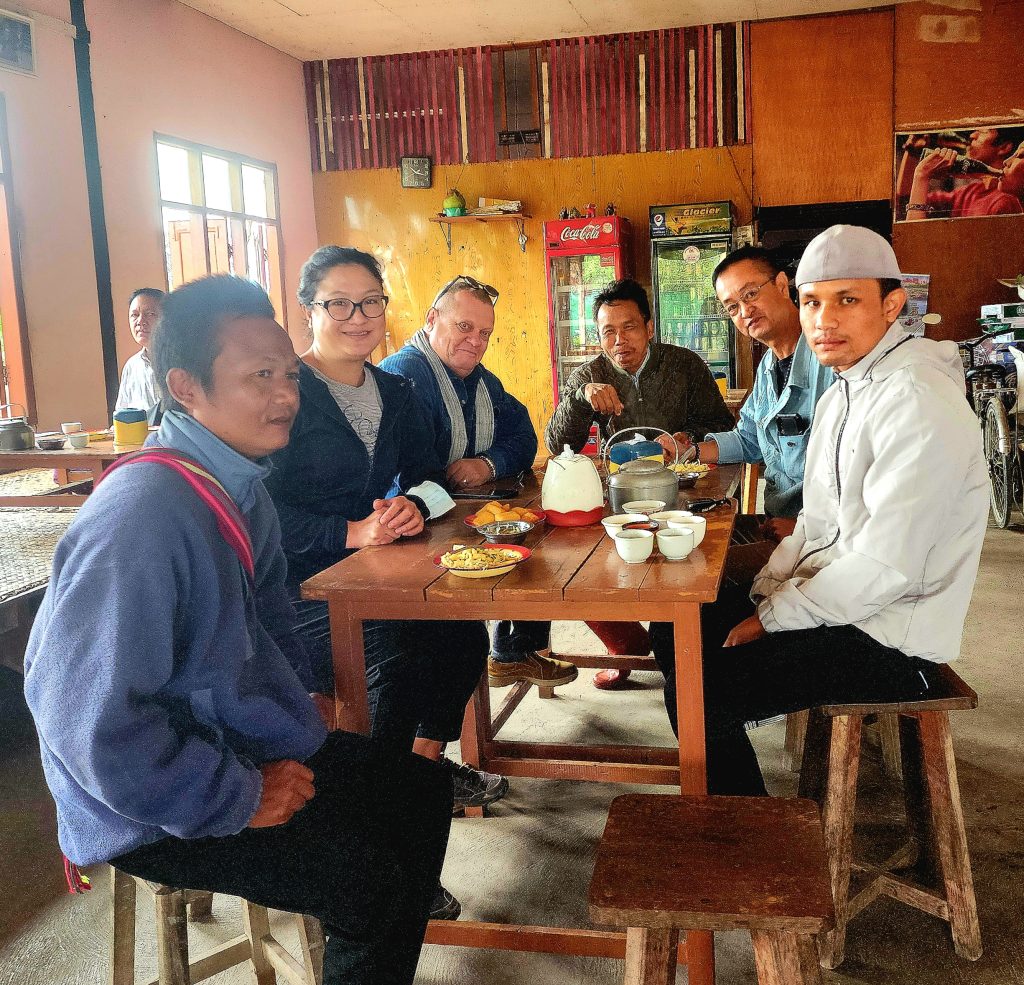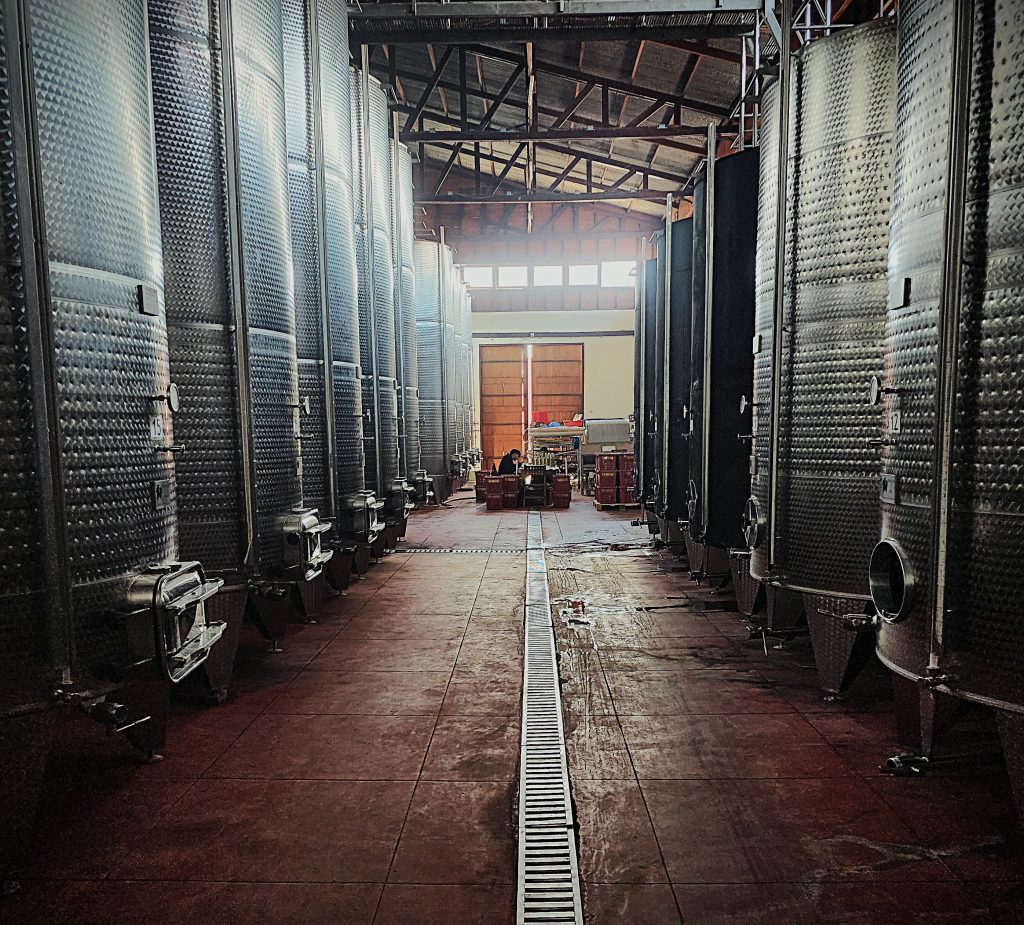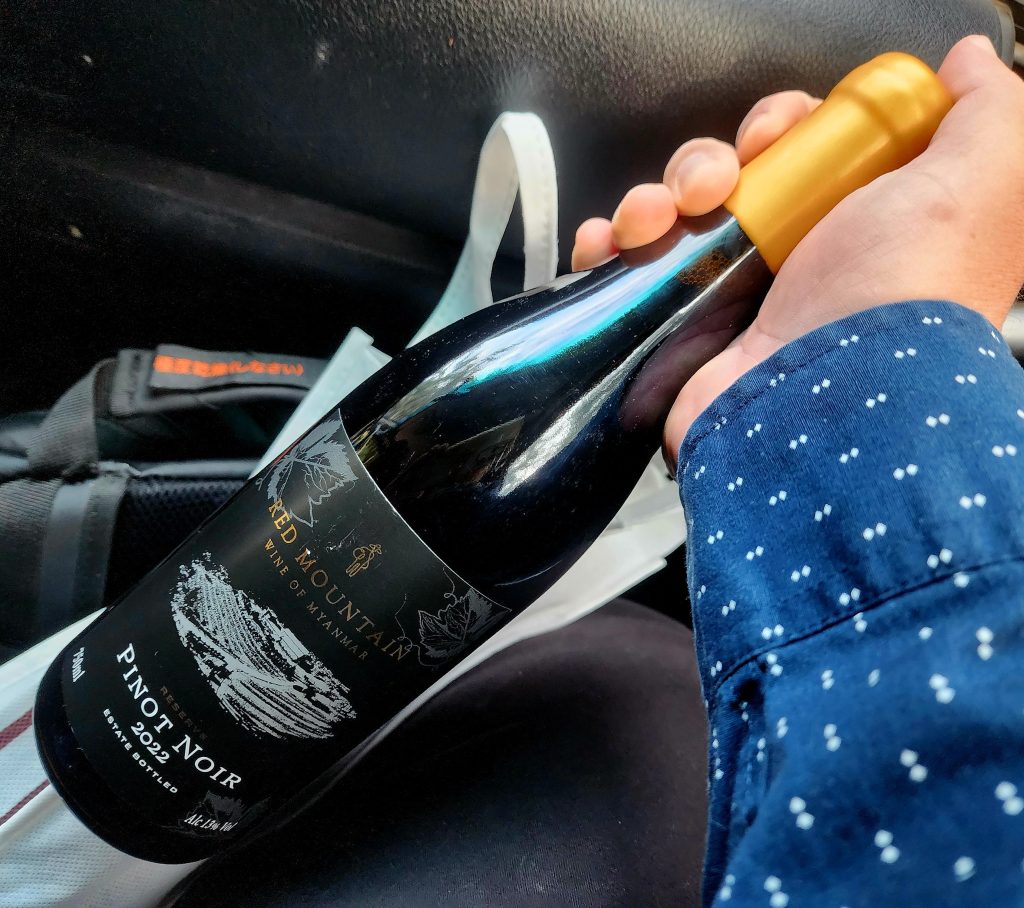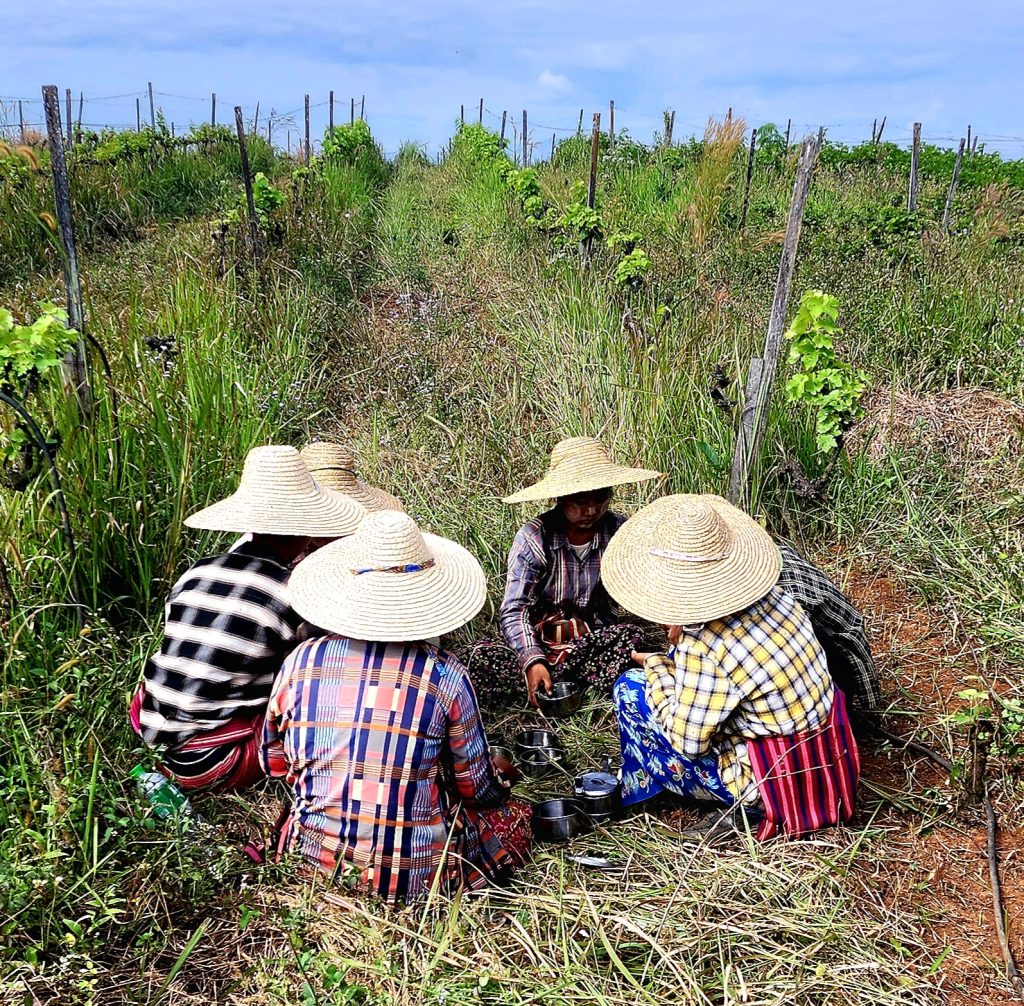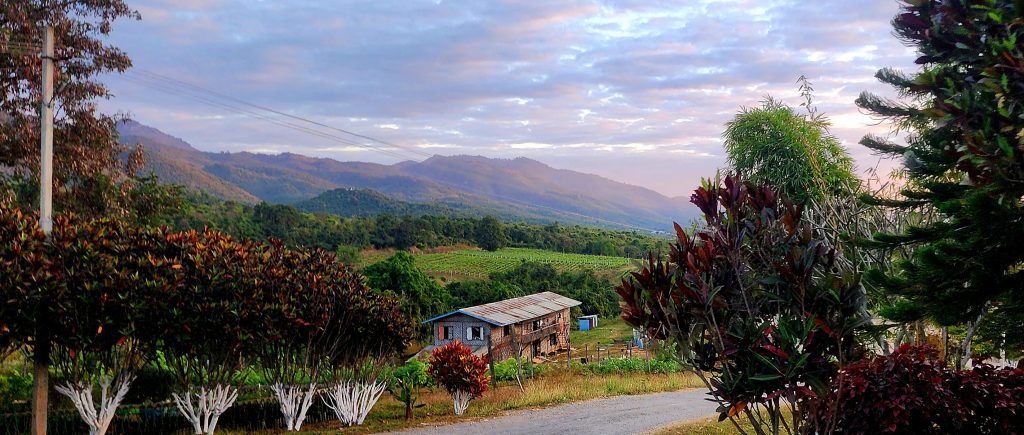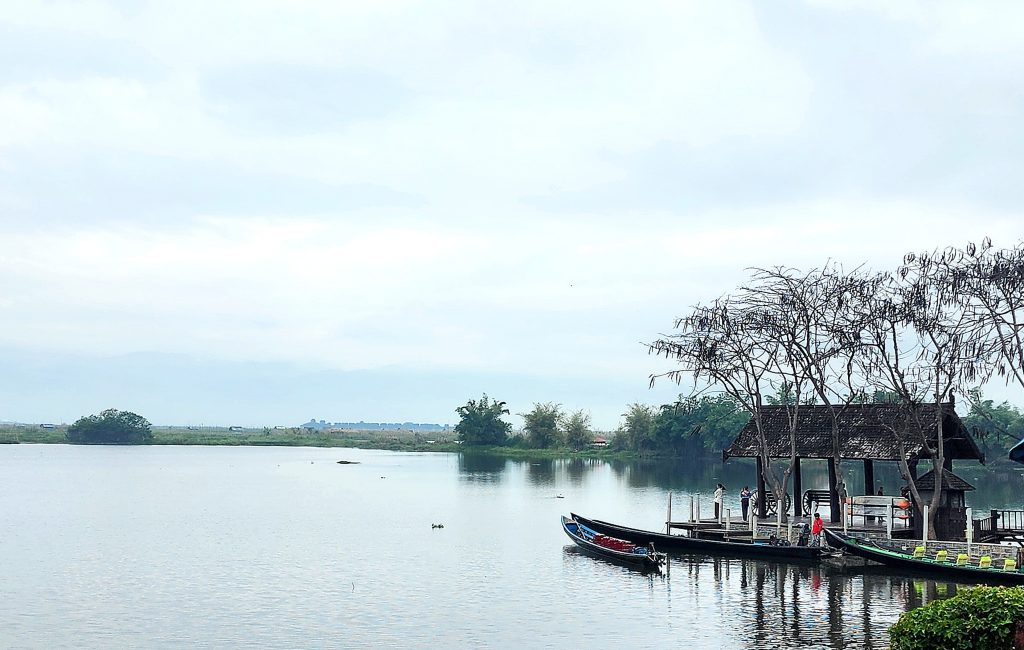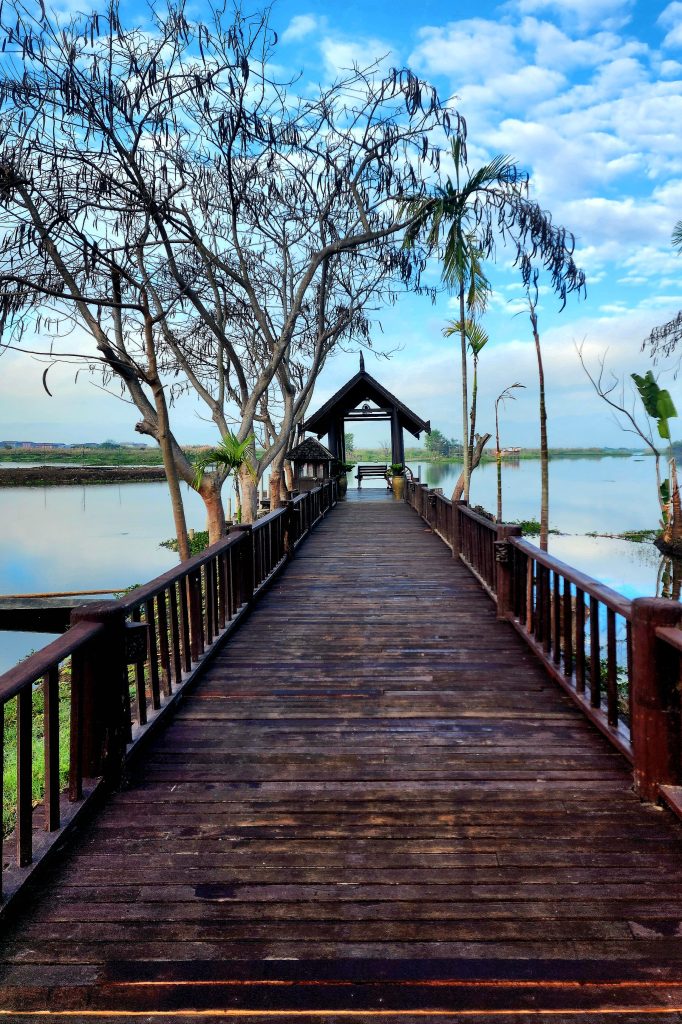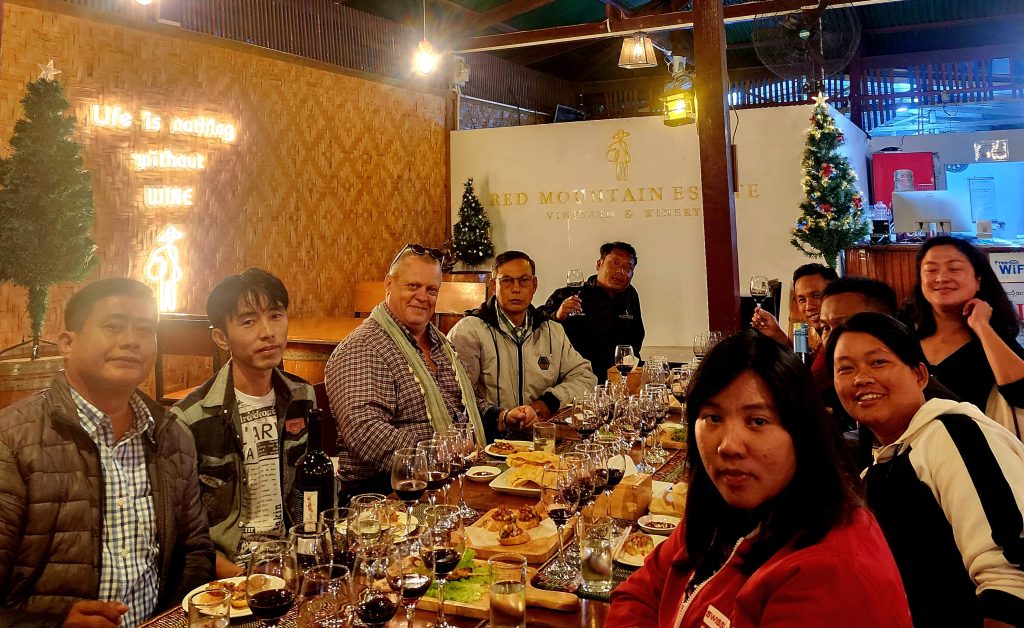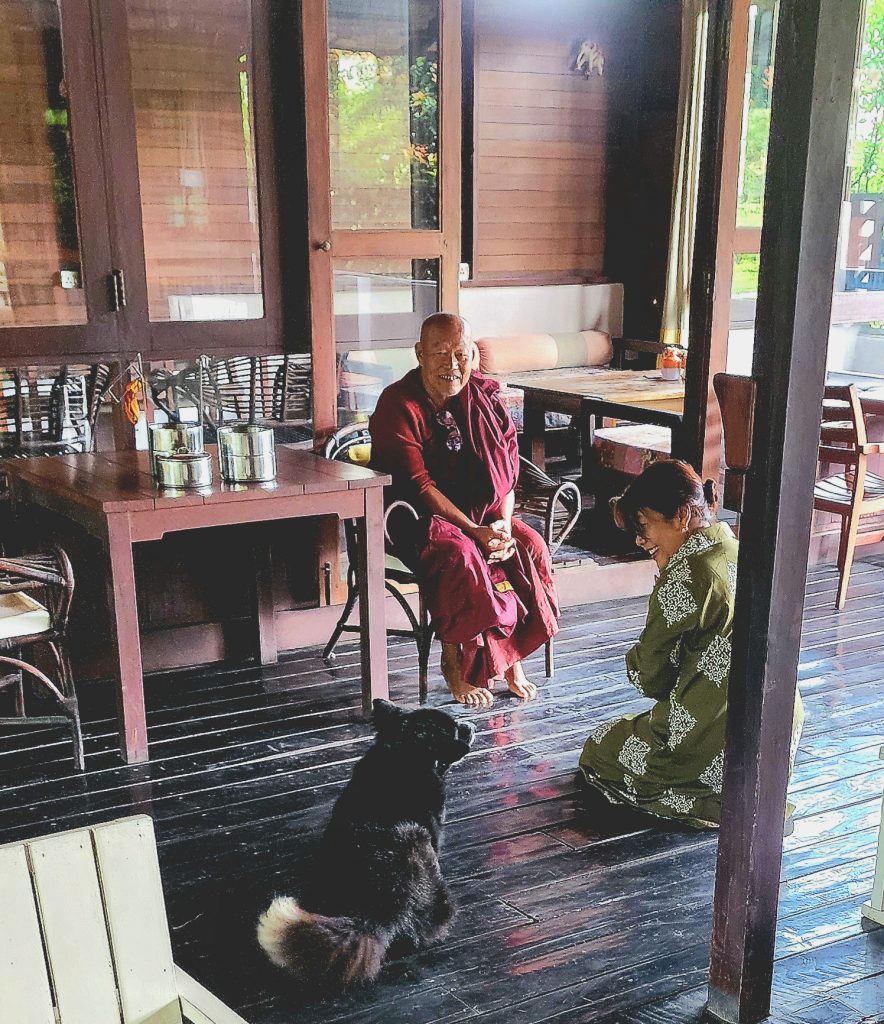အင်းလေးမှာရွာတဲ့မိုး– Inle Mar Ywar Dae Moe, (the rain in Inle)
The Morning Road
I have been coming to Inle Lake every month since 2019, with an interval during COVID 19, I cannot begin to describe how it feels to stay here.
The calmness of perfectly smooth water in the morning, like a vast satin sheet spread out across the land; the way the clouds dance with the mountains, resting in the valleys before rising up their slopes. Watching the villages awaken in the mist; the boatmen setting out, children walking to school, roadside noodle stalls firing up their stoves. Ox carts ambling along the verge, birdsong filling the air as fish break the water’s pristine surface. Monks and little nuns in robes of burgundy, maroon and bright pink, chanting blessings as they go on their morning alms rounds. Then there is the beauty of thanaka painted across a face taught with the strains of rural life.
I am proud of what we do here, not for my ego, my soul is proud of what we can achieve as a group, a team, as a whole -in a land that has mesmerized me from childhood. A land that always manages to bring a smile to my face and tears into my heart -all at the same time.
It is an incredible feeling to have arrived at the other end of your life, on the other side of the world, knowing that somehow you have ended up right where you were always meant to be.
Sunsets here are simply ineffable, as the sun’s arc bows to kiss the tops of the mountains, it is an evening routine that sets the sky on fire; ablaze with pinks and oranges, indigo and purple hues, as brilliant and mesmerizing as a work by Van Gogh, the artist himself a contradiction, the master of beauty from a soul full of turmoil.
Inle
They call it Inle lake, which means large lake, it sits high up in the middle of the mountains, in the middle of the country, it is the second largest lake in Myanmar, and it is the centerpiece of all life in the Shan Hills.
In June 2015, it became Myanmar’s first designated place of the World Network of Biosphere Reserves. It was one of 20 places added at the UNESCO 27th Man and the Biosphere (MAB) International Coordinating Council (ICC) meeting. Since 2018 it has been designated as a protected Ramsar site, marking it as a wetland site designated to be of international importance under the Ramsar Convention, (also known as “The Convention on Wetlands”), an international environmental treaty signed on 2 February 1971 in Ramsar, Iran, under the auspices of UNESCO.
It is home to the Intha, Pa’O and Shan people, as well as some Taungyo, Danu, Kayah, Danaw and Bamar ethnicities. The population is mostly Buddhist. However, each group has its own language, its own national dress, and each proudly celebrates and preserves its own culture and heritage.
Life is agricultural and aquatic, of mountain air and fresh water, all life revolves around the lake, people here build floating temples and gardens out on it, perform rituals and festivals on it, pray for it, eat from it, and write beautiful songs about it.
Inle Mar Ywar Dae Moe, (the rain in Inle)
Kai Zar is an ethnic Rakhine singer born in 1961, Inle Mar Ywar Dae Moe is an older song from his early hit list, a popular song that endures to this day, and has had many, many cover versions by popular Burmese artists. Divas, who have rendered it into a soulful, heart-wrenching ballad, sing most of these newer versions.
It is a song about a young boy in a small boat; he is way out in the middle of the lake when the sky darkens ominously. As he paddles for the shore the clouds burst, the storm hits and rain pours down with great ferocity. The boy is alone, scared and lost, he cannot see the shore. The singer begins imagining that if this lonely young boy had a lover with him, crouched in the prow of the boat, then he would be able to find the strength to make it to shore. The singer -as narrator- further reflects on how we all need and deserve to be loved and supported in our efforts.
The singer cries “Oh Rain in Inle may it stop, may it stop”. He urges the small boy to keep paddling for the shore and suggests that if he does, he will find the life’s partner who awaits him.
It’s a beautiful song. The first time I heard it was when a female singer with a gorgeous voice sang it as a melancholy refrain during a winery function at the Governor’s Residence in Yangon. It caught me off guard, in this amazing restored old venue, with this voice, part angel, part siren, it brought tears to my eyes. I felt the emotion in it, the weight of it, even before I understood it.
The original by Kai Zar can be heard here: https://youtu.be/tn6ApqADhiE?si=Pr_4fXUxm9W3RF_R.
Of the modern cover versions, my favourite is by Ni Ni Khin Zaw, her version of it live here: https://youtu.be/BFXnazvRzoo?si=nntUrPO5pEFboa3m.
In September, one hundred and seventy villages, including the town of Nyaung Shwe where I normally stay, were hit by unprecedented flooding, houses were underwater up to their roofs, huts were washed away as were many people with many lives lost. The little street with the collection of little villas where I stay had boats going up and down it when I tried to visit. Thankfully, Ei Ei, the manager and all of her team were safe.
My assistant winemaker lost a relative, another was only saved because the coat he was wearing got snagged on a sturdy tree branch that somehow managed to keep his head above the waterline, whilst also keeping him from being swept away.
Nineteen rivers, streams, and tributaries feed Inle Lake, but it has only one outlet, at the Mobye Dam. As a result, flood-affected residents have waited several months for the water to recede. The lovely little place where I stay has finally seen its water levels recede, and it has put itself back together. Still, it cannot open yet as it waits to have its generator repaired down in the capital, Yangon, and returned to her. In Nyaung Shwe, two hours of power in the morning and a further two hours at sundown is about all the electricity one can hope for on any given day.
People here are resilient. On my way back to Heho Airport after the floods, we drove past hundreds of locals fishing in bloated lakes, flooded rice fields and overflowing canals along the roadside. They appeared so calm and stoic that it looked like a leisurely pastime on any given Sunday. It was actually a need to catch something to eat for that evening, probably for that day. Life must go on, it finds a way.
“In some way I can’t define to you, the whole life and spirit of Burma are summed up in the way that girl twists her arms.”
George Orwell’s Burmese Days.
Red Mountain
I am making wine at Red Mountain Estate in the Shan hills, above Inle Lake. The setting is one of the most picturesque in the country; and I’m making wine with minority people in the area, Pa-O, Shan, Intha; these are people who have opened their arms and their hearts to me, and accepted me into their land, and for that I will be forever grateful.
Whilst I am making wine here and mentoring the young winemaking and viticultural teams, I am also seeking to learn from them, to tap into the beating heart and omnipresent soul of the place. A fine wine, along with the quality of its fruit and the deftness of its winemaking, must bear the indelible presence of where it comes from: soil, climate, rainfall, air quality, geology, and natural history. It will also bear the ineffable essence of its people, their culture and of the spirit of those that have gone before. Their histories, and their stories in a single glass of wine.
With the new vintage fast approaching, I was eager to get some of the materials that I had requested for the commencement of the harvest. This was easier said than done, but we had finally managed to get our goods to the Thai border, and I was expecting to have them in two more days. Then I got the following message from the head of purchasing: “Will the goods be ok if they remain in the truck for a few more days? At the border bridge we have war there now.”
“Beauty is meaningless until it is shared.”
George Orwell, Burmese Days
Making wine here is fraught with confronting and soul-destroying questions, conflict, and challenges, but it also has its share of faith-restoring, heart-warming moments as well. This is a country at war with itself, falling into despair. However, life must go on, people must find a way and whilst we are growing quality winegrapes and making beautiful wines my team here still eats, can still provide for their families and still manage a smile over a team dinner with a few good bottles to share.
In a glass of wine from a place like this, you could expect to smell its fear, drink its tears and taste the pain of loss, but if you give your glass a bloody good swirl -you can also find hope, smell humble pride and even taste small victories.
If we can manage to bottle some of the beauty of this place, along with the joy that making wine here brings us, and then share it with as many as possible, then we will have played our small part in spreading the love that can be found here on the shores of Inle Lake. Just as the song suggests.
“Don’t give up little boatman, row on without despair, one day your love will appear and support you in your life, go to find the shore.”
Kai Zar, Inle Mar Ywar Dae Moe
Darren Gall

